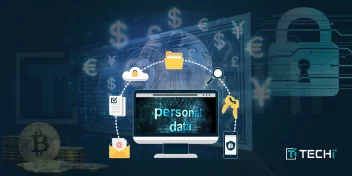After a slew of loud criticism, Facebook have rolled out new, more understandable privacy controls. At the core of the changes is what Facebook calls a more simple approach to privacy and a universal setting that will control access to data across the platform. Now, change your settings to ‘friends of friends’ and it will apply to all your interactions with Facebook. Also, applications and external websites will now have to ask permission for access to any sort of private data.
The only problem? It won’t matter.
Your Data Is Like Crack To Facebook
Facebook makes the bulk of its money in much the same way many web companies do: by serving ads. And Facebook serves a lot of them. In 2009, Facebook generated $500 million in revenue – and are likely on track to at least double that in 2010 – and the lion’s share of this came from advertising.
But as some have pointed out, unlike a company like Google, who make money by showing you ads based on things you’re already searching for, Facebook have to show ads that are created to generate interest.
Traditionally, these kinds of ads generate an incredibly low rate of click-through – less than 1% – because they’re often like guesses. Will visitor X like this ad? Who knows? Without knowing what visitor likes, there’s little chance they’ll happen upon an ad that intrigues them.
So lots of people have been trying to use the data created by social media to make those ads more specific and get those click rates up. After all, if you have access to what movies or restaurants or electronics a person likes, you can tailor ads to that person – which means way more clicks.
So, wanna guess how this factors into Facebook’s new approach to privacy?
Big Brother Zuck’s Business Plan
So Facebook is in a situation where the more integrated into your web life they are and the more open and public you are about sharing data, the more they know about you – and the more specific the ads they can show to you.
Put more simply: the more Facebook knows about your data, the better it is for their business.
Now, this has always been the case. But the new Open Graph is all about integrating Facebook into the broader web, detailing what you’re looking at and ‘liking’. Rather than just relying on what is going on in the semi-walled garden of Facebook, Zuck & Co. are now attempting to gauge, measure and record your behavior across the entire internet.
So by getting you to share you information about your life, Facebook has access to a huge amount of marketing data about their users demographics and interests. Or, as a friend less generously puts it, Facebook is a behavior harvest, intent on tracking its users’ movements across the web so that, when they return to Facebook, they will see ads supposedly suited to their interests.
Why Privacy is Bad for the Bottom Line
Of course, the more you choose to hide your personal data, or limit what certain websites can see, the less valuable you are to Facebook. As someone put it on Twitter the other day, to Facebook you aren’t a user – you are its inventory.
As a result, privacy and Facebook’s business model are at odds. It is in Facebook’s best interests to have your browsing habits, likes and interests as publicly accessible as possible because ads that tied to user interests will generate much more revenue. By contrast, it is the opposite of Facebook’s interests to allow you to hide or limit what you’re interested in because they will have to rely on generic display ads, which are much less profitable. So what’s best for Facebook is to ignore your privacy as much as it can and plow ahead.
This is why Facebook has a history of rolling out changes and then tweaking them slightly after an outcry. It’s also why the social network will continue to try and make the platform more and more public. When Mark Zuckerberg says the era of privacy is over, he is not describing a cultural change that has come about because of the web; he’s simply articulating his business plan.
Facebook and the Future of the Business
In the blog post announcing the changes today at Facebook, Mark Zuckerberg stated that “When you share more, the world becomes more open and connected.” What he failed to mention was that the more you participate in this ‘openness and connection’, the more you contribute to Facebook’s main revenue stream.
This overlap between disregarding ideals of privacy and a business plan also means that, as Facebook goes forward, it will continue to do as it has done in the past: it will change its service in order to protect and grow its revenue and then think about users’ concerns as an afterthought. And I think we can all agree: that’s good for no-one but Facebook itself.





19 User Comments
Steve Volton
I wonder when facebook is going to hack into my new Dell Streak.
Naomi Most
Good article.
Whether it’s true that the world IS becoming more “connected and open” or not — and whether that’s good for people or not — the REASON Zuckerberg is saying so has nothing to do with good intentions for society.
I sense that a LOT of people are missing that point, taking his assertions at face value rather than looking a level deeper at his motivations.
Alex Schleber
A largely agree, the only thing is that it’s not entirely clear that Facebook needed to throw their users privacy under the bus quite as much to get the “Like” button data harvest. My guess is most third party sites would have installed those buttons anyway, and FB internal stuff could have remained “Friends Only”. Even if they’ll ultimately serve up ads inside those FB “People/Friends Like This” boxes, like I think they will, the sites where this is served up would never need to have access to anything, they’d just get a revenue share similar to Adsense.
Brian H
This is absolute BS. I couldn’t care less if Facebook knows what websites I’m looking at or what music I like. I would prefer to see ads that pertain to my likes instead of random crap I don’t care about. What harm is facebook doing to me by wanting to know what I like. They are a business, a quite successful one at that. Correct me if I’m wrong but doesn’t “Social Media” mean public connections. If your an anti social person then stay off of facebook and stand in corner like you probably did at your high school prom.
JJ
here’s what I do, and I promise it works.
don’t click on ads unless you’re interested in buying something.
it’s that easy!